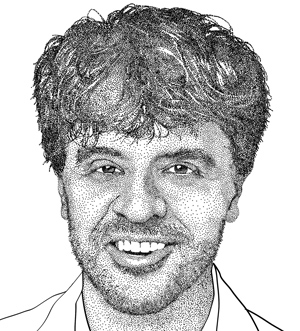by Bill Snyder

Stanford University’s Karl Deisseroth, MD, PhD, who has pioneered optogenetic methods to explore high-level functions of the brain and behavior, will deliver the next web-based Discovery Lecture on Thursday, March 17, at 4 p.m. via Zoom.
His talk is entitled “Inner Workings of Channelrhodopsins and Brains.” Participants will need to register in advance through the Office of Research (www.vumc.org/oor) to receive webinar instructions.
Deisseroth is the D.H. Chen Professor of Bioengineering and of Psychiatry and Behavioral Sciences at Stanford and a Howard Hughes Medical Institute investigator. A practicing psychiatrist, he also serves as director of Undergraduate Education for Bioengineering at Stanford.
Optogenetics is a research tool that, by genetically modifying neurons to express light-sensitive ion channels, enables the modulation (control) of neuronal activity with light. One such family of light-activated ion channels, the channelrhodopsins, has enabled Deisseroth and his colleagues to observe and control brain function at the cellular level.
The research is providing insights into the neural cell types and connections that may underlie adaptive and maladaptive behaviors, including dissociative and affective (mood) disorders.
Deisseroth’s lecture is sponsored by the Medical Scientist Training Program. For a complete schedule of Discovery Lectures, archived video of previous lectures, and the webinar registration link, go to https://www.vumc.org/discovery-lecture-series/upcoming-lectures.












